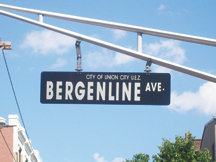The state’s Urban Enterprise Zone (UEZ) program attracts shoppers to specially designated urban business districts by allowing stores to charge only 3.5 percent state sales tax instead of 7 percent. In addition, the sales tax goes back from the state to the towns’ UEZ agencies to make improvements and pay for police officers.
But after Gov. Christopher Christie came into office a year and a half ago, he suggested that the program was doomed. Even if it continues in the near future, ultimately, he wanted to keep the programs’ funds within the state’s coffers instead of giving them back to the towns.
‘The program has allowed the town of Union City to offer a cleaner and safer Urban Enterprise Zone.” – Juan Rojas
____________
Decades old
The UEZ program was started in 1983 to help local businesses in New Jersey thrive in a competitive market.
Past legislation in New Jersey called for only one-third of sales of revenues earned at a UEZ zone to be given back to the town. According to West New York UEZ coordinator Michael Parkes, more recently proposed legislation will only allow 10 percent of funding to be used for UEZ administrative costs and requires the phasing out of funding for police and fire services via UEZ money. The legislation also encouraged the regionalization of smaller towns’ UEZs.
Towns need the help
Parkes said that the UEZ program helped bring big-name business like Home Depot and Walmart to the Tonnelle Ave shopping area.
“There is no program in the country that can be compared to New Jersey’s Urban Enterprise Program,’ said Parkes. “There are enterprise zones but they differ from [the] New Jersey program.”
According to Juan Rojas, the acting coordinator of the UEZ program in Union City, the program has allowed the town to offer a cleaner and safer business district for the customers and the businesses. The funding has allowed for more advertising and cable network commercials promoting the UEZ program. Also, the town was also able to hire police to patrol the UEZ zones, and has used UEZ trucks to clean up litter.
Mark Albiez from Union City Mayor and State Sen. Brian Stack’s office said the UEZ program is critical to the area and Stack is hoping to continue it.
Parkes said that when the program was set up, towns at first got 90 percent of the revenue, then two thirds, and then a third, over 20 years. Before the program could be phased out, legislators passed a law beginning the cycle again.
Opposition
The Hudson County Comprehensive Economic Development Strategy Committee, which oversees the region and documents economic problems and opportunities, on March 9, 2011 passed a resolution at a meeting opposing the termination of the UEZ program since “UEZs constitute an important development tool for the communities by creating jobs, spurring economic growth, improving the local property tax base, and enhancing the local business climate.”
The West New York mayor and commissioners passed a resolution May 25, 2011 opposing a report prepared for the New Jersey Economic Development Authority that was negative about UEZs.
The commissioners said, “The report is flawed because it focused on the narrow time frame of 2002-2008 for judging the UEZ Programs’ economic impact, ignored many positive impacts of all UEZ programs, and made faulty comparisons of New Jersey’s UEZ Program to economic programs in other states that operate in different manners and with different goals.”
The state Senate approved a bill on June 29, 2011 introduced by Democrats to increase funding to education, Medicare, the working poor, and senior citizens. The bill also will help inject funding into the UEZ program. But Gov. Chris Christie was opposed to the bill unless modifications would be made that would cut funding to certain other programs in the state.
Regardless of recent decisions on the matter, officials and business leaders are hoping the program will remain strong in the next few decades, despite all indications that it may be doomed.
Santo Sanabria may be reached at SSanabria@hudsonreporter.com.
